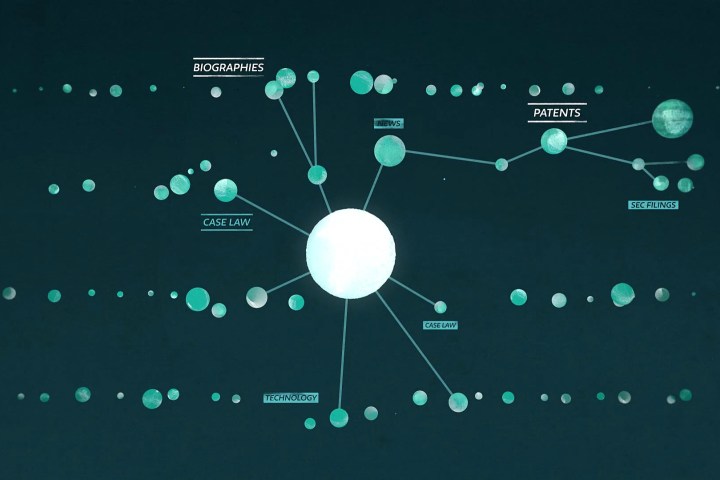
But sometimes there’s a need for another kind of search, namely to locate documents that aren’t explicitly linked or otherwise referenced between each other but where each contains the same rare terms. In those cases, a method called “semantic mapping” becomes valuable, and there’s now a free option that does just that, as Engadget reports.
Omnity is a search firm that has been providing a paid service to businesses and educational institutions involving the performance of semantic mapping. That is, the Omnity search engine looks specifically for rare words in otherwise unrelated documents that likely indicate that those documents are in fact related. Semantic mapping is great for looking for information in scientific, medical, engineering, and legal documents, along with patents and internal organizational information, that aren’t otherwise explicitly connected.
Now that Omnity has opened up its search engine to the public, anyone can create a free Omnity account and start searching via the engine’s semantic mapping function. You just enter your terms in the very typical search bar, and Omnity populates a graphical representation of documents and the relationships between them — it’s a highly visual result that helps searchers find information that might otherwise be difficult to identify as important. Here is an example of an Omnity search result (click to enlarge):

The search process isn’t as fast as Google or other typical search engines because Omnity digs through its database looking for connections between documents based on the search terms. The results are also much narrower compared to the hundreds of thousands or millions of pages that can result from searching the usual engines.
Omnity’s results are visual groupings of related documents that can then be drilled into for more in-depth information and deeper searches for yet more related documents. Searchers can even upload their own documents, which will be crawled to identify the rare words and phrases they contain, which in turn will be used to find semantic relationships with other documents in the Omnity database.
Google and Bing don’t have to fret over Omnity’s emergence as a free search engine, of course. Omnity is best for students and researchers who are looking for in-depth information or for obscure information that’s unlikely to show up in search engines that rank pages for common keywords and incoming links. For those interested in giving the search engine a whirl, Omnity is now free and open to the public.
Editors' Recommendations
- Google’s ChatGPT rival just launched in search. Here’s how to try it
- This Bing flaw let hackers change search results and steal your files
- Google now wants you to scroll forever on its Search for mobile
- The best alternatives to Google Search
- Google Maps will now show coronavirus outbreaks in your area


